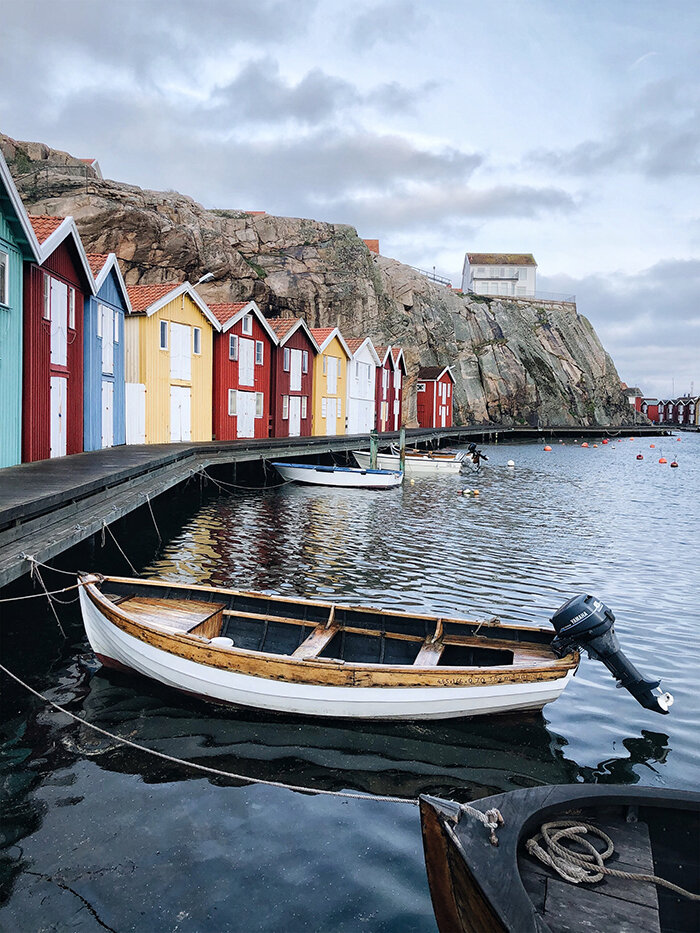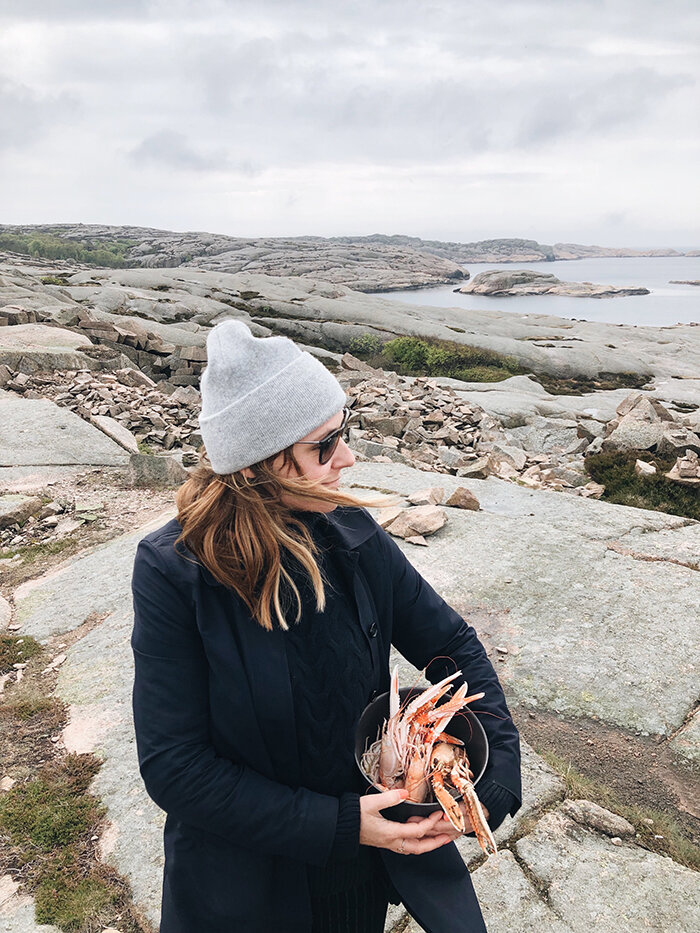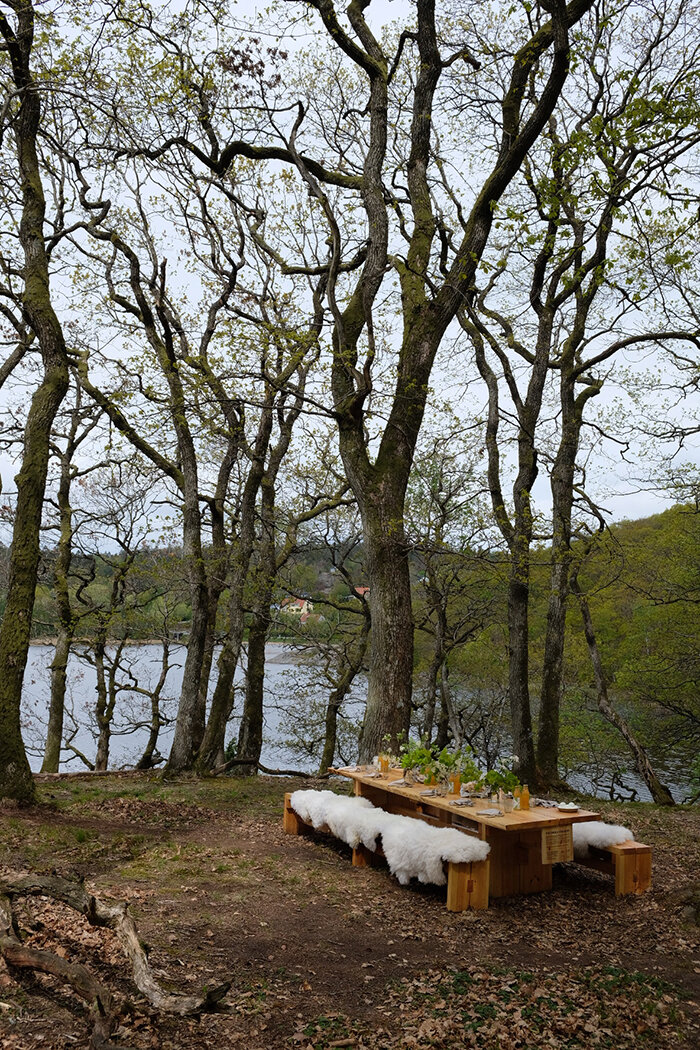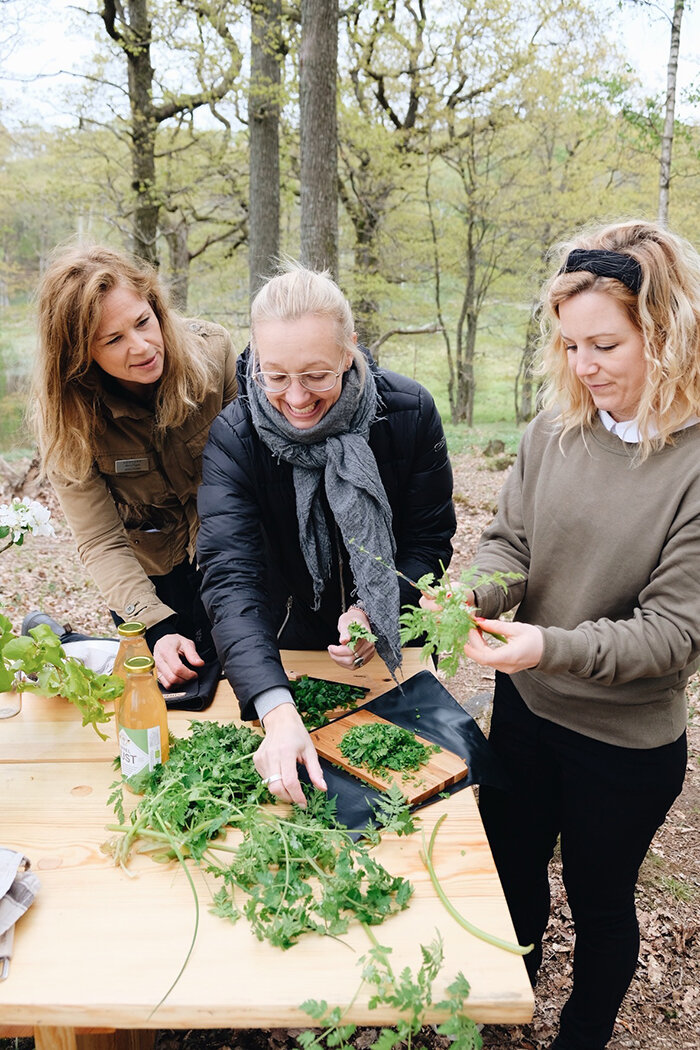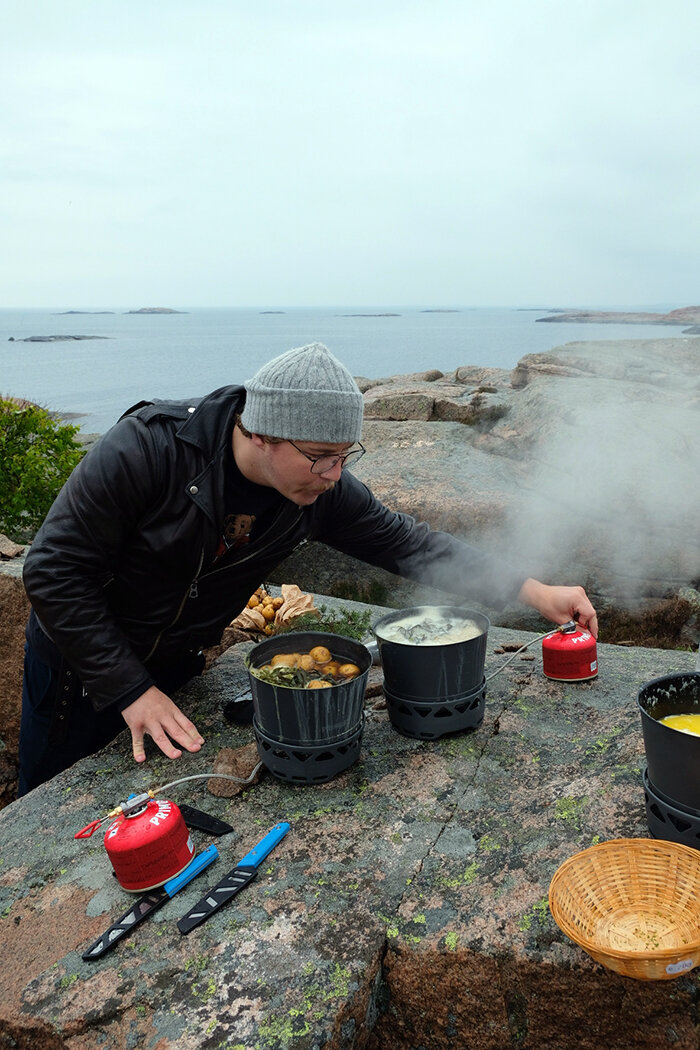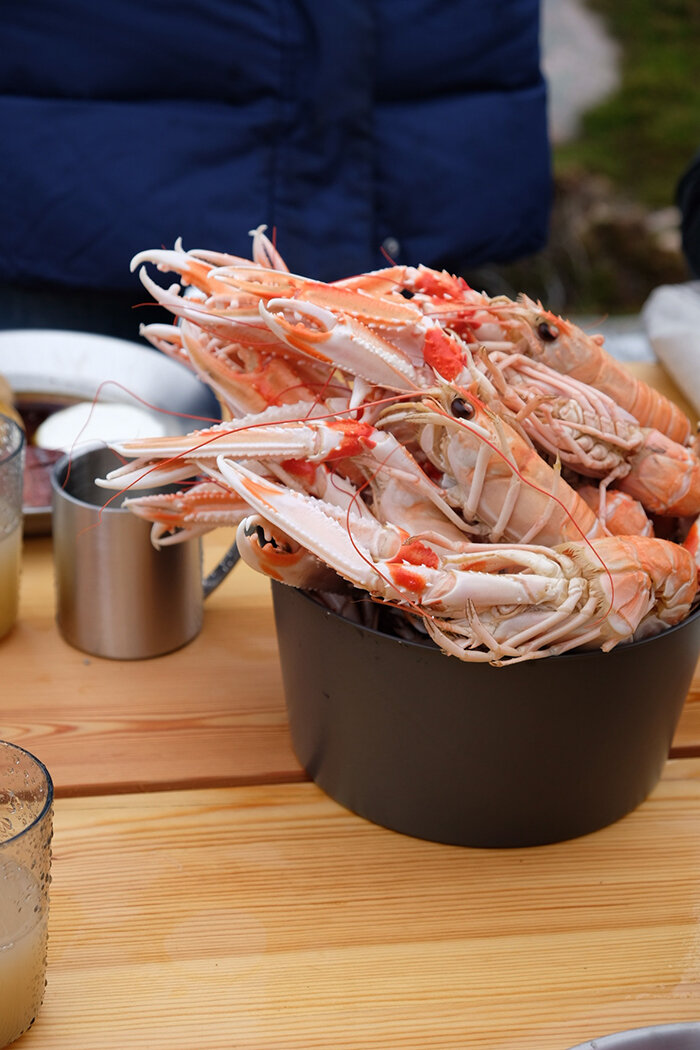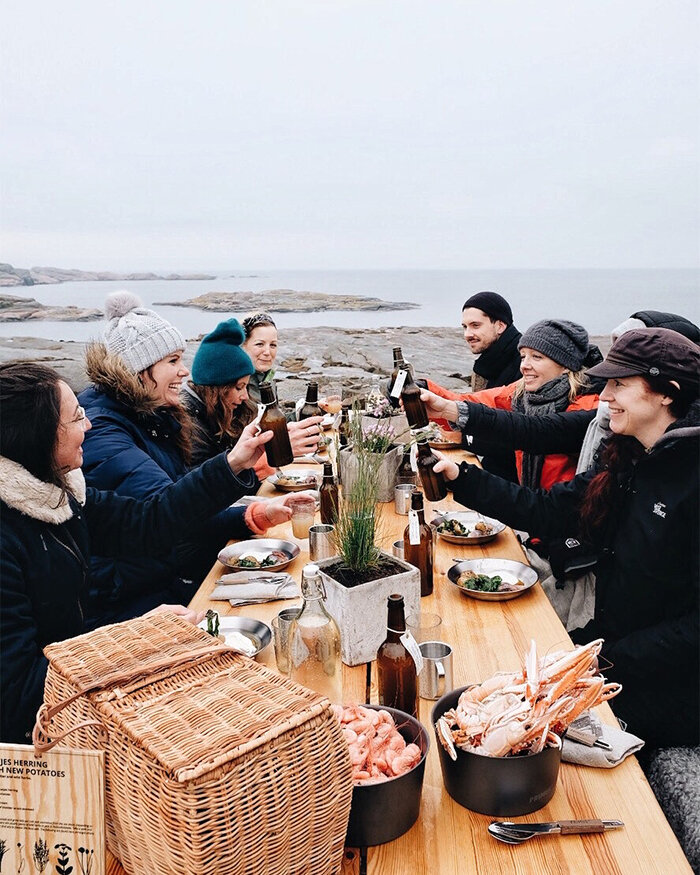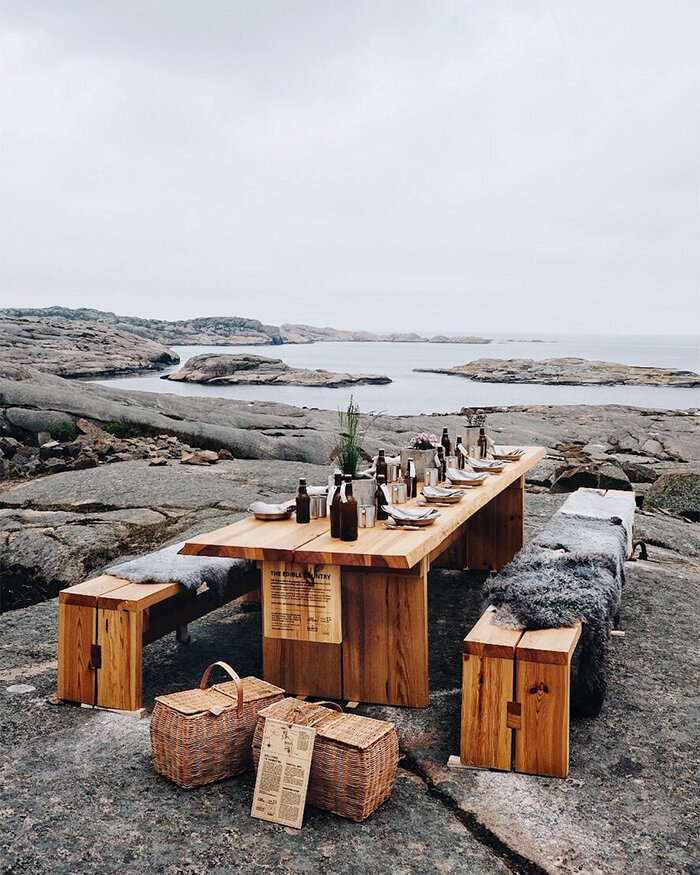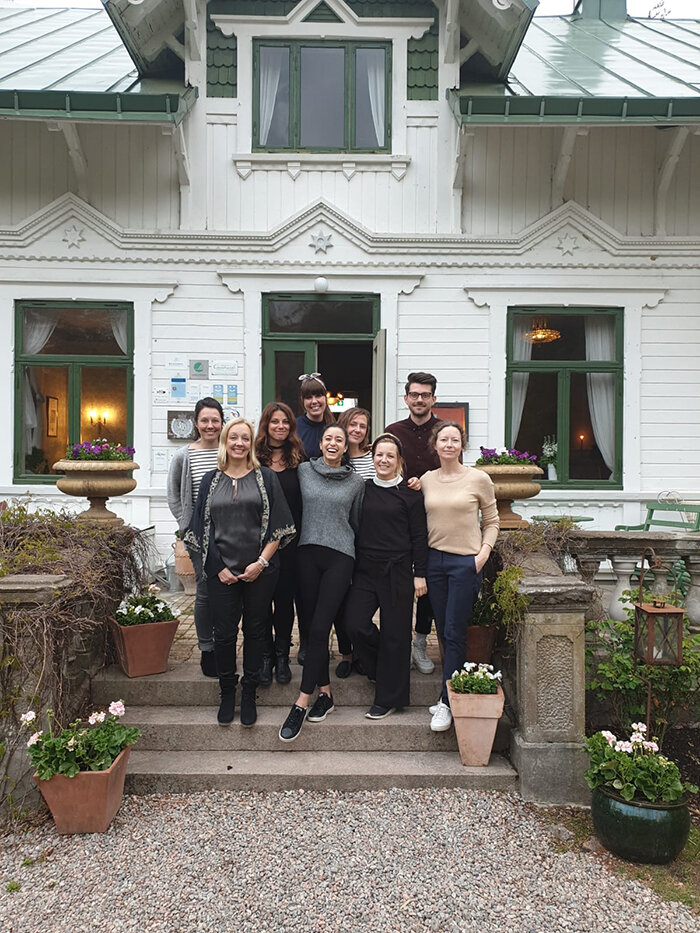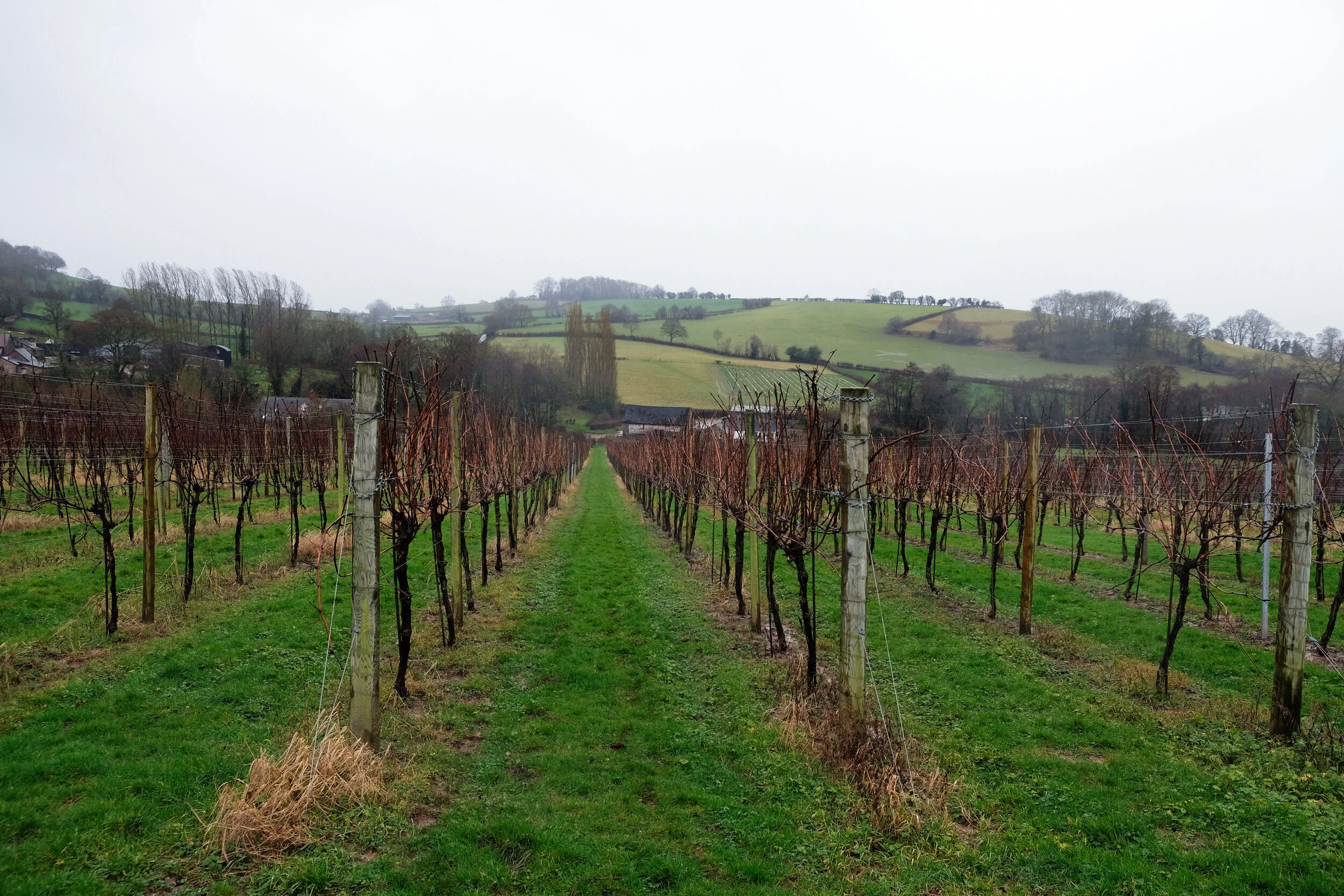Sweden: exploring 'Edible Country'

Nature focussed week in West Sweden
In partnership with Visit Sweden
Sweden is one of the world's most sustainable countries and part of the explanation lies in its close connection to nature that reflects Swedish way of life and also how they eat. This trip was all about the region and country’s nature focussed culinary initiatives and experiences, sustainable lifestyle, food and outdoor pantry that is immersed within the country’s culture.
Smögen Island
Ramsvik Nature Reserve
Day 1
Cooking outdoors and using ingredients from the nature’s pantry is something Swedes have done throughout the ages, proving all the positive health effects that a close-to-nature lifestyle is known for, and now the country is offering visitors the chance to experience foraging, sourcing ingredients and cooking healthy dishes in the outdoors with a brand new initiative, The Edible Country.
Launching this summer, all visitors to Sweden can now experience the country’s great, healthy food in its natural surroundings at puposely built tables located around the country in unique, outdoor locations. Each table can be booked via Bookatable and comes with instructions on how and where to source ingredients in the surrounding countryside with easy to follow menus created by Swedish Michelin chefs.
We started from the table at Gunnebo House & Gardens. After a tour of the beautiful grounds, we foraged herbs, cooked and dined at this picturesque table overlooking the spectacular lake.
Over the return to Gothenburg we briefly got to know the city and were off for a dinner at Vrå. Head chef Sofia Olsson has a passion for Swedish raw material as well as sustainability aspects when it comes to fish and the products that are used in her restaurant. Vrå has been voted one of the 10 best fish restaurants in Sweden and are well known for mixing Swedish and Japanese flavors in a sustainable way. Also we visited her little organic garden on the roof of the same building. Not to miss if in the city!
Day 2
Our second day we started with a train ride to Garveriet. Garveriet is an old tannery by the river Säveån that turned bakery, restaurant, café, shop, conference halls and more that opened autumn 2018. Sustainability permeates everything in here - the ingredients come from producers within a 20 kilmoters radius, and the aim is to become entirely self-sufficient on vegetables and fish, and besides that to inspire others to live and eat more sustainably. Stop here for a lunch, a Swedish "fika" – or learn something new at a "zero waste" cooking class. In March 2019 Garveriet was awarded the price “Pioneer of the year” by the Swedish White Guide.
In the afternoon we drove to Catxalot for a Seaweed Safari! Her we learned more about the different seaweeds that are found in Bohuslän area. Linnea Sjögren and Jonas Pettersson are passionate about the exciting recource under the sea surface. Catxalot focuses on wild seaweed on the Bohus coast; they collect and sell seaweed to restaurants and shops, organize Seaweed Safaris, walks and even kayak tours about seaweed and food. Seaweed tastes delicious, is nutritional and super sustainable. You can use seaweed in many ways and each kind has its own taste and characteristics.
Day 3
Woke up in Smögen Island. Smögen is Bohuslän’s liveliest summer town, with its nearly one kilometre long boardwalk brimming with shops, cafes, pubs and restaurants. There are lots of events to enjoy in high season, and it is home to one of Sweden’s few fish auctions, where you can buy fresh fish, shrimp and other seafood delicacies. Here we stayed at Smögens Hafvsbad. Smögens Hafvsbad opened its doors at the beginning of the last century. In those days, the hotel had a dining room and eight rooms. Smögens Hafvsbad has since expanded into a modern complex with 76 guest rooms, restaurant, spa and conference facilities.
After a day of hiking around the island we couldn’t be more excited about the dinner at Skärets Krog and a meeting with Thomas Sjögren. Thomas is the Chef of the Year 2015 and co-owner of the restaurant. Here we enjoyed classic west coast flavours with a modern twist. The dishes are always seasonal and using the best local ingredients, whether they come from the sea, the kitchen garden or a local farm.
Day 4
Next morning together with Thomas Sjögren we drove to Ramsvik Stugby & Camping. Thomas joined to lead us through a do-it-yourself outdoor lunch at our final the Edible Country table at Ramsvik Nature reserve. Thomas is the chef who has put together the local menu for The Edible Country at Ramsvik, his recipe is inspired from the Michelin chefs and by the coast of Bohuslän. Making food with ingredients from nature’s pantry is something people have done throughout the ages. Now Swedes give a helping hand to anyone who wants to do that. Natural and healthy food can be just as tasty and easy to make as anything else. And cooking it outdoors gives you all the positive health effects that a close-to-nature lifestyle comes with. That’s why Sweden has turned itself into the world’s largest gourmet restaurant. Because here, great healthy food is just around the corner – in the natural surroundings. This West Swedish table has been placed on one of the rocks of Ramsvikslandet, a nature reserve which, with its fantastic sea views and breathtaking panorama over the vast landscape of glacier worn rocks, created a food and nature experience I’ll never forget.
After the lunch we explored Ramsvik nature reserve for the rest of the day.
For our final night we checked in at Villa Sjötorp. It all started with some friends who used to get together at Villa Sjötorp in the summer. Rumours about a large, sumptuous, mysterious old house spread over time. These days the same house is an ecological hotel and restaurant. It was so peaceful and quiet in this beautiful turn of the century villa from 1901. There is a sandy beach for swimming very close by, one of Sweden's most beautiful golf courses, fishing, sailing, lovely footpaths in the forest and in the hills and other wilderness experiences in the area. At 7 we gathered for the organic dinner downstairs. Villa Sjötorp uses carefully selected and mainly ecological ingredients from the salty sea of Bohuslän and Västergötland’s land, forests and lakes. The restaurant is certified by A Taste of West Sweden. This certification is reserved for restaurants, producers and farm shops which offer sustainable and genuine west Swedish products and fine dining, all based on local seasonal produce.
